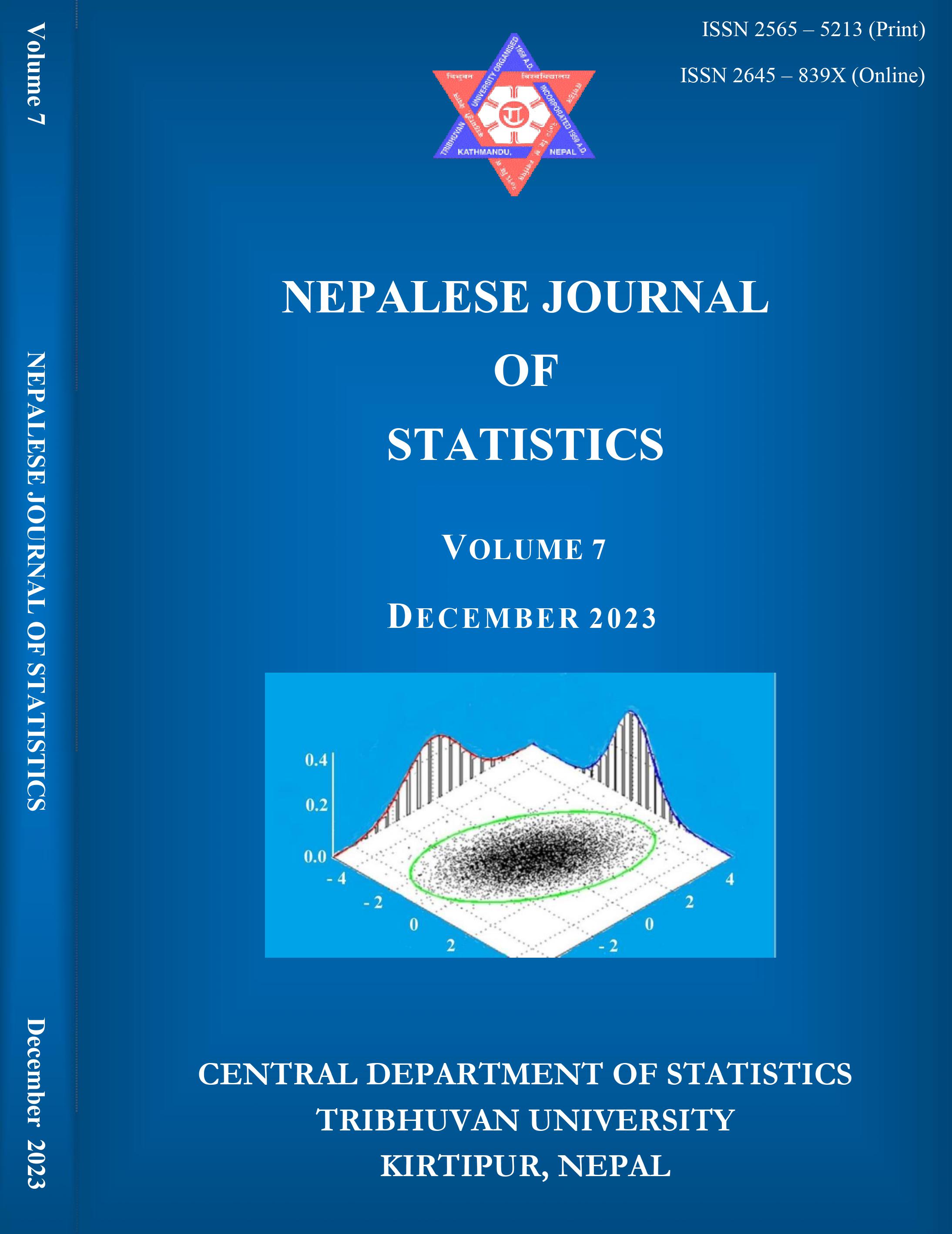Status of Hypertension and its Determinants among Teachers in Tribhuvan University Campus, Kirtipur, Kathmandu
DOI:
https://doi.org/10.3126/njs.v7i1.61056Keywords:
Hypertension, multinomial logistic regression, non-communicable diseases, occupational stress, physical activity, prevalenceAbstract
Background: Hypertension, often known as high blood pressure, is a crucial public health issue and an essential topic of study because of its high prevalence and being a vital exposure to cardiovascular diseases and other health consequences. Therefore, being both a standalone disease and a precursor to non-communicable illnesses, hypertension poses a global health menace.
Objective: The study was conducted to investigate the status of hypertension and its associated risk factors among the teachers from Tribhuvan University Campus.
Materials and Methods: The cross-sectional research study involved 247 teachers from TU central campus using stratified random sampling and both descriptive and inferential statistical analytical methods. Multinomial logistic regression model was employed to investigate the relationship between several variables and hypertension levels.
Results: The fitted model, which had a classification accuracy of 67.2%, met the diagnostic test requirements for goodness of fit, multi-collinearity and minimal criteria of the model's use. Influential variables for pre-hypertension included interpersonal relationship, age group, gender, duration of service, smoking and physical activeness. For hypertension, significant variables encompassed job itself, interpersonal relationship, age group (45-50 years), gender, duration of service, smoking, tobacco use and physical activeness.
Conclusion: It was observed that 37.7% of the respondents had hypertensive status, 30.3% were surpassing normotensive and 32.0% were pre-hypertensive. Teachers’ hypertension status was discovered to be influenced by a variety of sociodemographic, behavioral, clinical, and stress variables. Concerned authorities must pay close attention to this issue.
Downloads
Downloads
Published
How to Cite
Issue
Section
License
© Central Department of Statistics, Tribhuvan University, Kirtipur, Kathmandu, Nepal
The author of article must sign the copyright permission or the author must assign copyright to the Central Department of Statistics, Tribhuvan University prior to publication.
All rights reserved.




